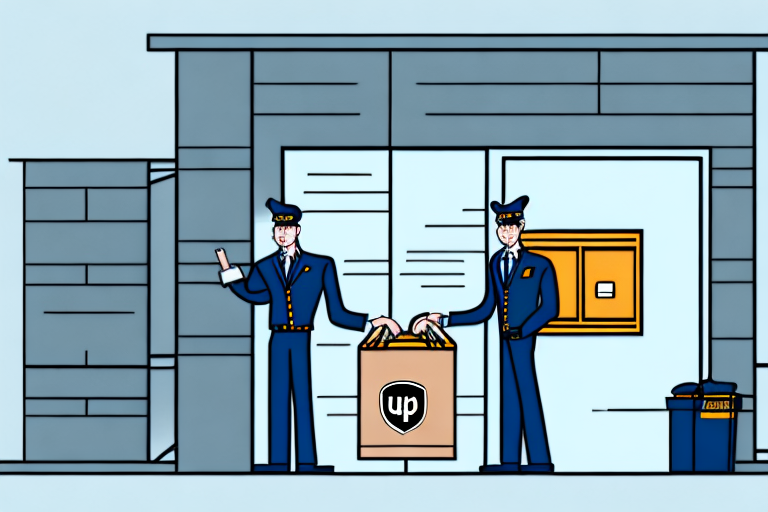Understanding the Importance of UPS Audits for Your Business
For businesses that heavily rely on shipping processes, a UPS audit is an essential evaluation tool. A UPS audit is a comprehensive review of your shipping practices to ensure compliance with UPS regulations and industry standards. While the prospect of an audit might seem daunting, it plays a critical role in maintaining high standards, ensuring quality control, and optimizing shipping efficiency.
Compliance with Federal and Local Regulations
UPS audits ensure that your business adheres to both federal and local shipping laws. This compliance is vital not only to avoid legal penalties but also to maintain a trustworthy relationship with your customers and partners. According to the Federal Motor Carrier Safety Administration, adherence to shipping regulations significantly reduces the risk of fines and operational disruptions.
Enhancing Shipping Process Efficiency
One of the primary benefits of a UPS audit is the identification of inefficiencies within your shipping processes. For instance, an audit might reveal incorrect packaging practices that lead to damaged goods and increased costs. By addressing these issues, businesses can streamline operations, reduce expenses, and improve overall shipping performance.
Benefits of a Successful UPS Audit
Successfully navigating a UPS audit demonstrates your commitment to excellence in shipping and logistics. Here are some key benefits:
- Increased Customer Trust: A successful audit can enhance your reputation, making customers more confident in your ability to deliver products reliably.
- Operational Improvements: Audit findings can highlight areas for process enhancements, leading to greater efficiency and cost savings.
- Competitive Advantage: Demonstrating compliance and efficiency can set your business apart from competitors, attracting new partners and customers.
Common Areas of Focus During a UPS Audit
UPS audits typically examine several critical aspects of your shipping operations to ensure compliance and efficiency:
Shipping Documentation and Compliance
Auditors will review the accuracy and completeness of your shipping documentation, including invoices, purchase orders, and shipment labels. Proper documentation is essential for compliance and to prevent delays or errors in the shipping process.
Facility Security and Package Handling
The security measures in place at your shipping facility are scrutinized to ensure that packages are handled safely and securely. This includes evaluating surveillance systems, access controls, and employee protocols for verifying recipient identities.
Packaging Standards and Hazardous Materials Handling
Proper packaging is crucial to prevent damage during transit. Additionally, if your business handles hazardous materials, compliance with safety regulations is rigorously assessed. The Occupational Safety and Health Administration (OSHA) provides guidelines that businesses must follow to ensure safe handling and transportation of hazardous items.
Preparing for a UPS Audit: Tips and Best Practices
Effective preparation is key to a smooth UPS audit. Here are some strategies to help you get ready:
Review and Verify Shipping Documentation
Ensure that all your shipping paperwork is accurate and up-to-date. This includes invoices, purchase orders, and shipment labels. Regularly auditing your documentation can help identify and rectify errors before the official audit.
Conduct Employee Training
Properly trained employees are essential for maintaining compliance. Provide comprehensive training on UPS regulations, packaging standards, and safety protocols. This ensures that your team is well-prepared to handle shipments correctly and adhere to all necessary guidelines.
Perform a Mock Audit
Conducting an internal mock audit can help identify potential issues and areas for improvement. This proactive approach allows you to address any discrepancies beforehand, increasing your chances of a successful audit outcome.
Choosing the Right Third-Party Auditor
If you decide to engage a third-party auditor, selecting the right partner is crucial. Consider the following factors:
Expertise and Experience
Choose auditors who specialize in shipping and logistics and have a deep understanding of UPS regulations. Experienced auditors can provide valuable insights and identify nuanced issues that may not be apparent to less experienced reviewers.
Reputation and References
Research potential auditors’ reputations and seek references from other businesses that have utilized their services. Positive testimonials and a proven track record are indicators of a reliable auditing partner.
Cost and Customized Services
Evaluate the cost of auditing services and ensure they offer transparent pricing. Additionally, opt for auditors who can tailor their services to meet your specific business needs and budget constraints.
Interpreting and Acting on UPS Audit Results
After the audit, you'll receive a detailed report highlighting areas of compliance and those needing improvement. Here's how to make the most of these results:
Analyze Audit Findings
Carefully review the auditor’s recommendations and identify actionable steps to address any deficiencies. Prioritize changes that will have the most significant impact on your shipping efficiency and compliance.
Implement Necessary Changes
Develop a plan to implement the recommended improvements. This might involve updating your shipping software, revising packaging procedures, or enhancing security measures. Ensure that all changes are documented and communicated to relevant team members.
Continuous Monitoring and Improvement
Regularly monitor your shipping processes to ensure ongoing compliance and efficiency. Conduct periodic internal audits to maintain high standards and be prepared for future UPS audits.
The Role of Technology in Streamlining UPS Audits
Leveraging technology can significantly enhance your readiness for a UPS audit and improve overall shipping operations:
Automated Shipping Software
Implementing automated shipping solutions can reduce errors, streamline documentation, and provide real-time visibility into your shipping processes. Tools like UPS’s own shipping software offer features that facilitate compliance and efficiency.
Document Management Systems
Utilize digital document management systems to organize and store all shipping-related paperwork. This ensures that critical documents are easily accessible during an audit and minimizes the risk of misplaced or incomplete records.
Data Analytics and Reporting
Advanced data analytics tools can help you monitor shipping performance, identify trends, and make informed decisions. By analyzing shipping data, you can proactively address potential issues and enhance your overall shipping strategy.
Conclusion
Undergoing a UPS audit can be a transformative experience for your business, driving improvements in compliance, efficiency, and customer satisfaction. By understanding the audit process, preparing thoroughly, and leveraging technology, you can ensure a successful audit outcome. Regularly reviewing and optimizing your shipping practices not only prepares you for audits but also positions your business for sustained growth and success in the competitive logistics landscape.




















